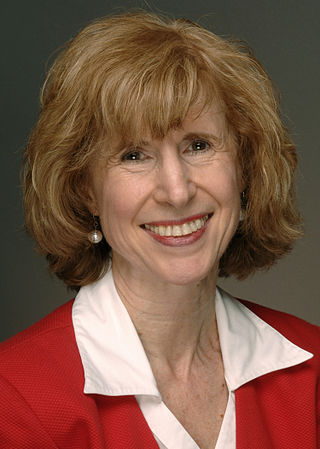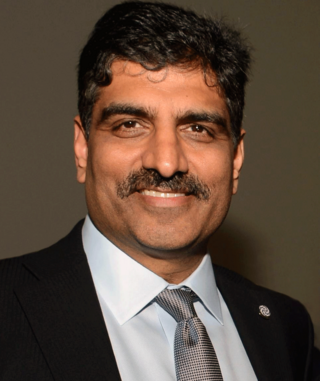Related Research Articles

Herbert Aaron Hauptman was an American mathematician and Nobel laureate. He pioneered and developed a mathematical method that has changed the whole field of chemistry and opened a new era in research in determination of molecular structures of crystallized materials. Today, Hauptman's direct methods, which he continued to improve and refine, are routinely used to solve complicated structures. It was the application of this mathematical method to a wide variety of chemical structures that led the Royal Swedish Academy of Sciences to name Hauptman and Jerome Karle recipients of the 1985 Nobel Prize in Chemistry.

Margaret Ann Boden is a Research Professor of Cognitive Science in the Department of Informatics at the University of Sussex, where her work embraces the fields of artificial intelligence, psychology, philosophy, and cognitive and computer science.
Quantitative psychology is a field of scientific study that focuses on the mathematical modeling, research design and methodology, and statistical analysis of psychological processes. It includes tests and other devices for measuring cognitive abilities. Quantitative psychologists develop and analyze a wide variety of research methods, including those of psychometrics, a field concerned with the theory and technique of psychological measurement.
John Hurley Flavell is an American developmental psychologist specializing in children's cognitive development who serves as Anne T. and Robert M. Bass Professor, Emeritus at Stanford University. A foundational researcher of metacognition and metamemory, he is a member of both the National Academy of Sciences and the American Academy of Arts and Sciences.
David J. Schneider is an American psychologist. He is a professor of psychology and the director of the cognitive sciences program at Rice University.
Irving Biederman was an American vision scientist specializing in the study of brain processes underlying humans' ability to quickly recognize and interpret what they see. While best known for his Recognition by Components Theory that focuses on volumetric object recognition, his later work tended to examine the recognition of human faces. Biederman argued that face recognition is separate and distinct from the recognition of objects.

James J. Jenkins is an American psychologist who played a significant role in the development of cognitive psychology.

Stanley Schachter was an American social psychologist best known for his development of the two factor theory of emotion in 1962 along with Jerome E. Singer. In his theory he states that emotions have two ingredients: physiological arousal and a cognitive label. A person's experience of an emotion stems from the mental awareness of the body's physical arousal and the explanation one attaches to this arousal. Schachter also studied and published many works on the subjects of obesity, group dynamics, birth order and smoking. A Review of General Psychology survey, published in 2002, ranked Schachter as the seventh most cited psychologist of the 20th century.

Nancy L. Segal is an American evolutionary psychologist and behavioral geneticist, specializing in the study of twins. She is the Professor of Developmental Psychology and Director of the Twin Studies Center, at California State University, Fullerton. Segal was a recipient of the 2005 James Shields Award for Lifetime Contributions to Twin Research from the Behavior Genetics Association and International Society for Twin Studies.
Donald Bruce Johnstone, also known as D. Bruce Johnstone, (born January 13, 1941) is an American educator who served as Chancellor of the State University of New York (SUNY), headquartered in Albany, New York; and President of Buffalo State College, in Buffalo, New York. Johnstone is also Professor Emeritus at the University at Buffalo (UB). He was named SUNY Chancellor Emeritus in 2014.

The Princeton University Department of Psychology, located in Peretsman-Scully Hall, is an academic department of Princeton University in Princeton, New Jersey. For over a century, the department has been one of the most notable psychology departments in the country. It has been home to psychologists who have made significant scientific discoveries in psychology and neuroscience, such as adult neurogenesis in primate brains, the concept of the cognitive miser, bystander non-intervention, face-selective neurons in primate brains, feature integration theory, mental models theory, and prospect theory.

Elizabeth D. "Betty" Phillips was the Director of University of Florida Online. She resigned abruptly after serving only three months in that position, without explanation. She previously served as provost and executive vice president of Arizona State University (2006-2013) and provost of the University of Florida (1996-1999), among other administrative positions.
Charles Patrick Ewing is a forensic psychologist, attorney, SUNY Distinguished Service Professor, and Professor of Law Emeritus at the University at Buffalo Law School. He was Vice Dean for Legal Skills from 2009 until 2012, and for Academic Affairs from 2012 to 2014. Ewing received his Ph.D. from Cornell University and his law degree with honors from Harvard University. Before joining the law faculty, he taught at Mansfield University, where he taught psychology, and at Brandeis University, where he taught legal studies. At SUNY, Ewing has taught criminal law, evidence, torts, juvenile law, forensic science, psychology, and psychiatry and the law.
Professor Gabriel Segal is an academic philosopher, cognitive scientist and an author.

Robert Vince is an American scientist known for his contributions to the research in the area of drug design. He is currently the director and professor at the Center for Drug Design at the Academic Health Center for the University of Minnesota.

Venu Govindaraju is an Indian-American whose research interests are in the fields of document image analysis and biometrics. He presently serves as the Vice President for Research and Economic Development. He is a SUNY Distinguished Professor of Computer Science and Engineering, School of Engineering and Applied Sciences at the University at Buffalo, The State University of New York, Buffalo, NY, USA.

Professor Rajendra D Badgaiyan is an Indian-American psychiatrist and cognitive neuroscientist. He is best known for developing a new neuroimaging technique for detection of acute changes in concentration of dopamine released in the live human brain during performance of a cognitive, behavioral, or emotional task.
Terence J. G. Tracey is an American psychologist, author and researcher. He is professor emeritus of counseling and counseling psychology at Arizona State University. He is also a visiting professor at University of British Columbia. He has served in many administrative positions at Arizona State University including department head and associate dean. He is the former editor-in-chief of Journal of Counseling Psychology.
Soonja Choi (Korean: 최순자) is a South Korean linguist. She specializes in language acquisition, semantics, and the linguistics of Korean.
Jeffrey M. Lackner is an American clinical psychologist, educator, and researcher at the University at Buffalo (UB). He currently serves as a professor in the Department of Medicine at UB's Jacobs School of Medicine and Biomedical Sciences. As chief of its Division of Behavioral Medicine, Lackner oversees a division whose clinical, research, and educational activities focus on the interplay of medicine and behavior as they impact chronic disease. He is known for his work on low-intensity behavioral self-management approaches for high-impact pain disorders.
References
- ↑ Minnesota, University of (1956). Register of Ph. D. Degrees Conferred by the University of Minnesota. University of Minnesota.
- ↑ "1994 Vita". www.acsu.buffalo.edu. Retrieved 2022-08-06.